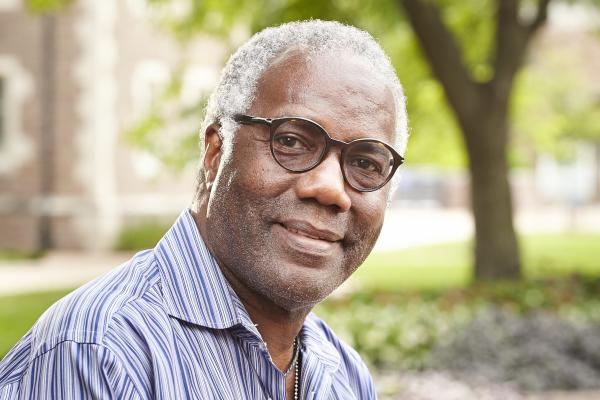
The Nebraska Repertory Theatre continues its #HistoryMakers season with “Dutchman” by LeRoi Jones/Amiri Baraka.
Performances are Feb. 13-24 in the Studio Theatre in the Temple Building. For tickets and more information, visit http://nebraskarep.org/dutchman.
“Dutchman” is a play written by African-American playwright Amiri Baraka, then known by his birth name, LeRoi Jones. A conversation on a subway turns vicious as “Dutchman’s” two passengers, a white woman and a young black man, flirt with race and rage. The Obie-winning drama exerts an incendiary power as it dares to uncover the anger and fear buried below polite American decorum.
“’Dutchman’ is a shocking play, and I don’t use the term lightly,” said Nebraska Repertory Theatre Artistic Director Andy Park. “It shines a light on racism, and the play is just as relevant today as when it premiered in 1964. I've seen hundreds of plays in my lifetime, but I still find myself thinking about the first time I saw this production.”
Park said the issues raised in “Dutchman” resonate with issues happening today on campus.
“We had some frightening things happen on campus last year, and students of color were genuinely afraid on our campus,” Park said. “I wanted to confront the issue, and so I picked a piece of theater that once impacted me very personally. Great theater can bring a diverse group of people to share a common experience. Anything can happen in the space theater provides. I hope this play will be moving, shocking and thought-provoking for our audience.”
While the play is relatively short, running about 75 minutes, Park said it packs a punch.
“This is a challenging play—but it’s gripping,” he said. “We’re also planning to facilitate a conversation after most performances. This is a play that you’ll want to talk about afterwards.”
“Dutchman” will be guest directed by Ron Himes, the founder and producing director of the St. Louis Black Repertory Company, which has developed a national reputation for staging quality productions from an African-American perspective.
“Ron Himes is a true national treasure,” Park said. “He founded the oldest and largest professional African-American Theater, The St. Louis Black Rep in 1976. Ron is a brilliant director and an important voice of the American Theater. I'm still in awe that we were able to get Ron to direct Amiri Baraka's groundbreaking play. I can't think of a director who I'd rather have. It's incredible that Ron Himes is directing for Nebraska Rep.”
In addition to founding the Saint Louis Black Repertory, Himes has produced and directed more than 100 plays at The Black Rep, including August Wilson’s “The Piano Lesson” and the Black Rep’s own “I Remember Harlem II.” In 1993, Himes appeared as Clarence Thomas in “Unquestioned Integrity: The Hill/Thomas Hearings.” In 1994, The Black Rep’s production of “The Meeting” moved to the Kennedy Center for the Performing Arts.
In 2003, Himes was appointed the first Henry E. Hampton, Jr. Artist-in-Residence at Washington University, a joint appointment of the Performing Arts and African American studies departments. He has received numerous honors and awards, including the St. Louis 2004 Heroes Pierre Laclede Award in 2004; The Arts & Education Council’s: Lifetime Achievement Award in 2001; The Better Family Life’s Creative Artist Award in 1997; the St. Louis Black Repertory Company’s Woodie Award for Best Direction from 1994-1997; and Honorary Doctorate of Fine Arts from the University of Missouri-St. Louis in 1993, and from Washington University in 1997; and the Dr. Martin Luther King Jr. Life and Legacy Award from the National Pan-Hellenic Alumni council.
While “Dutchman” is both psychological and metaphorical, the themes are both relevant and timely today.
“I think the audience will be on the edge of their seats. It’s a very exciting and disturbing play,” Park said. “This is one train ride you will never forget.”